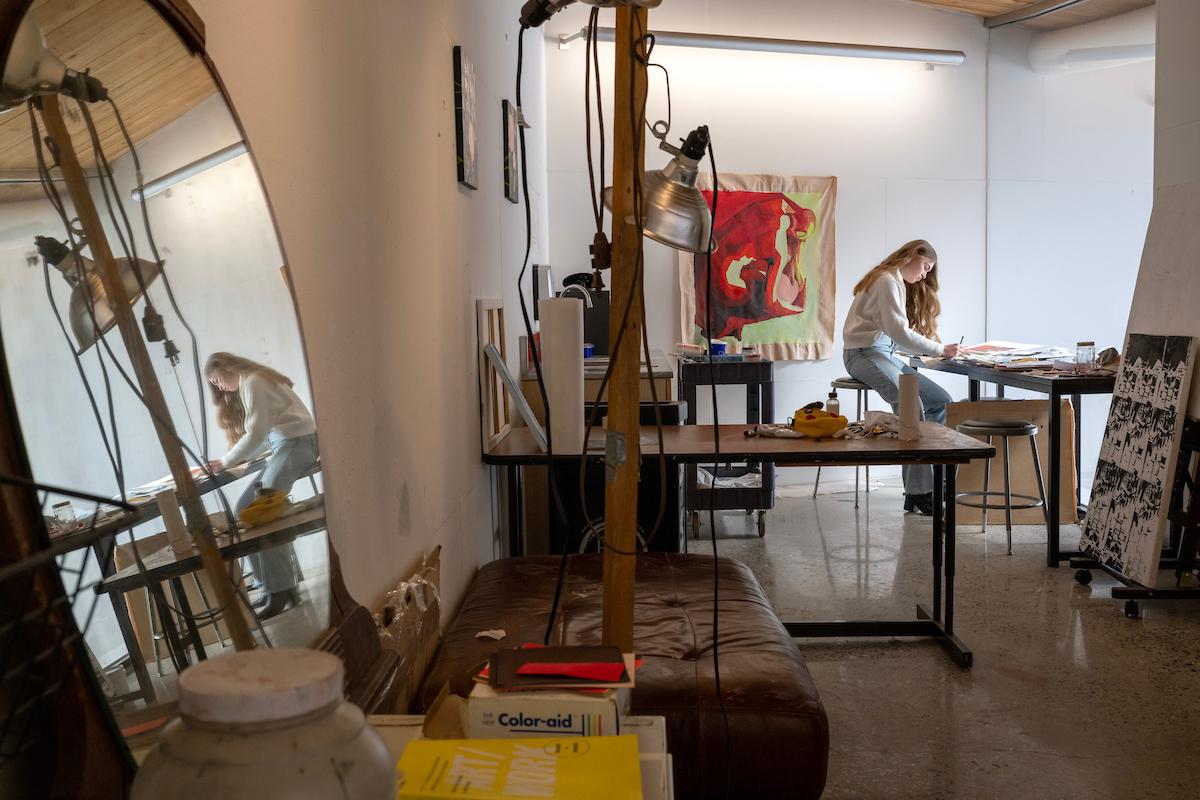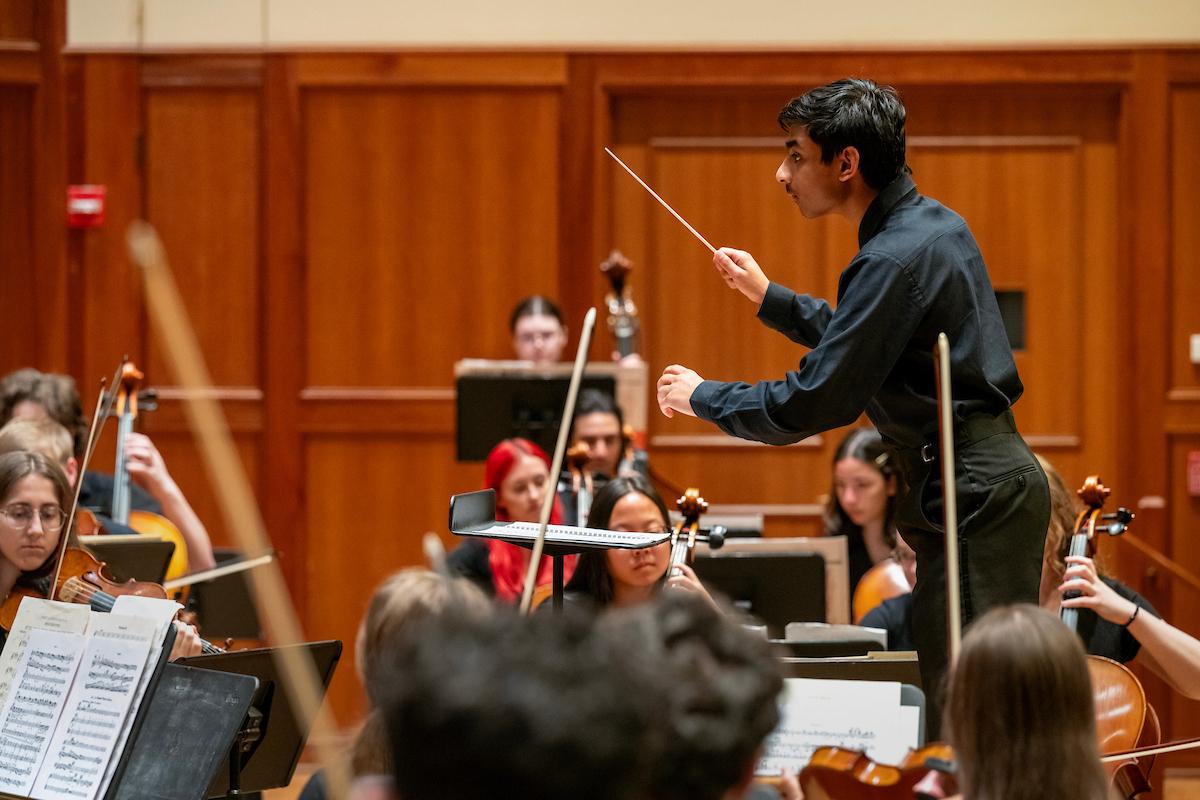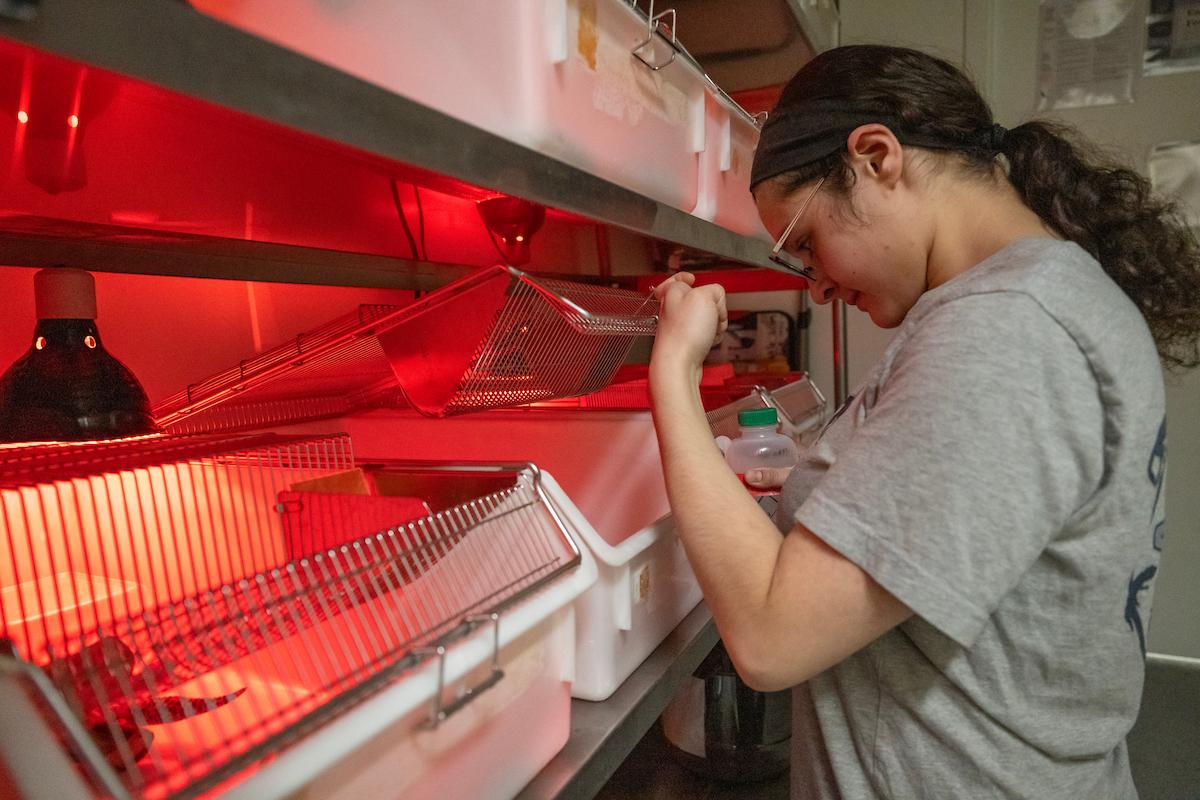The Connections Curriculum
Embodying the true spirit of a liberal arts education, our Connections curriculum encourages you to strive beyond traditional boundaries to make connections — between disciplines that at first glance seem unrelated, between theory and practice, and between your liberal arts education and the world.
Our Connections curriculum is built around the theme of exploration, giving you two years to dive into your interests and expand your intellectual horizons before declaring your major at the end of your sophomore year. This framework empowers you to design an academic path that is precisely tailored to your interests and goals while you creatively collaborate with your fellow Diplomats and professors, learn with purpose through hands-on experiences, and form the strong foundation of the skills and tools you’ll need to meaningfully contribute to the world as an engaged citizen and informed, effective leader.
There are three phases of Connections: Introduction, Exploration, and Concentration.
Phase 1: Introduction
Connections seminars are your introduction to academic life at F&M. Seminars are small classes limited to 16 students. You will take your Connections seminar during your first semester on campus. You’ll hone and develop your abilities in situational awareness and leadership, strategic thinking, consensus-building, interdisciplinary collaboration, problem-solving, conflict management, ethics, and constructive discourse — intellectual and versatile skills in high demand among top employers and graduate programs.
During the summer before you arrive on campus, you’ll review the Connections course descriptions for the fall semester, choose those you’re most interested in taking, and rank them in order of preference. These selections will help determine the Connections seminar in which you are placed.
Examples of connections seminars
- American History in True Crime
- Animals Through the Ages
- Greek Tragedy and the Tragic
- Social Activism: Effective Dialogue
- Language, Society and Linguistic Rights
- Solo Performance Art
- Environmental Impacts of War
- How Your Hands Think
- Food, Fashion and Facebook
- Medieval Cities
- Mountains, Natural Resources and Water
Curious to see more examples of Connections seminars? Check out our course catalog to see the variety of options we offer.
Phase 2: Exploration
The Exploration phase is your chance to branch out and try new things—to dive into subjects you’ve always been curious about and discover new interests you might never have considered. You'll take classes in the arts, humanities, social sciences, sciences, languages, and global cultures, expanding your intellectual horizon and finding connections among a wide range of subjects. We offer:
-
52 majors and minors
- 10 certificates, which are supplemental educational pathways you can pursue outside
of your major or minor, combining classes across a complementary range of fields of
study
Phase 3: Concentration
The final phase, Concentration, is when you’ll determine which fields you are most passionate about and want to pursue more profoundly. You’ll choose a major by the end of your sophomore year, allowing you to gain depth and breadth within a specific field and pursue advanced work. Learning by doing is embedded in our DNA as Diplomats, and we ensure you’ll have ample opportunities to engage in hands-on experiences. From innovative research and impactful internships to community engagement and immersive off-campus study, you'll experience creative collisions that foster transformative connections with a community committed to your success.
If you uncover unexpected connections between fields you’re interested in, you have the option to declare more than one major. More than a third of F&M students declare more than one major or design a special studies or joint major. Doing so allows you to craft a distinctive educational experience tailored to your specific intellectual goals.
Examples of Double and Joint Majors
- Environmental Studies & Government
- History & French
- Public Policy & Sociology
- Dance & International Studies
- Business, Organization and Society & Data Science
- Psychology & Public Health
- English & Film and Media Arts
- Classics & History of Art and Architecture
Examples of Special Studies Majors
- Neurobehavior
- Consumer Behavior
- History of Medicine
- Biocultural Studies of Gender
- Urban Inequality and Education Studies
- Ethics, Law, and Business
A Glimpse at Our Connections Courses
November 27, 2024
Students Explore Campus and Community in History of Science Course
First-year students at Franklin & Marshall College are heading out of the classroom and into the laboratory—and surrounding community—as part of the course “A Hands-On History of Biology.”
November 9, 2022
Making Connections: Exploring the Role of Emotion in Music with Karen Leistra-Jones
We met with Associate Professor of Music Karen Leistra-Jones to discuss her Connections course, Music and Emotion. “The course is structured around a single foundational question: Why does music move us?” Professor Leistra-Jones said. “We look at examples of different types of music and discuss how they convey emotions like happiness, sadness, and anger, but we also approach the question from philosophical, psychological, and anthropological perspectives."
January 10, 2023
Making Connections: Unraveling Political and Social Upheaval in Hugo’s ‘Les Misérables’
Lisa Gasbarrone, professor of French, taught a Connections course, “Les Misérables,” an in-depth reading and analysis of Victor Hugo’s renowned, 19th-century historical novel. Professor Gasbarrone — who joined F&M in 1986 — has recently been writing on the novel in Quebec and also on Victor Hugo (“Restoring the Sacred in Les Misérables”).
An F&M liberal arts education prepares you to be world-ready, equipping you with transferrable
skills to excel in not just one career, but many. As a Diplomat, you’ll form a strong
foundation of the tools you need to meaningfully contribute to the world as an engaged
citizen and effective leader.How F&M Does the Liberal Arts






